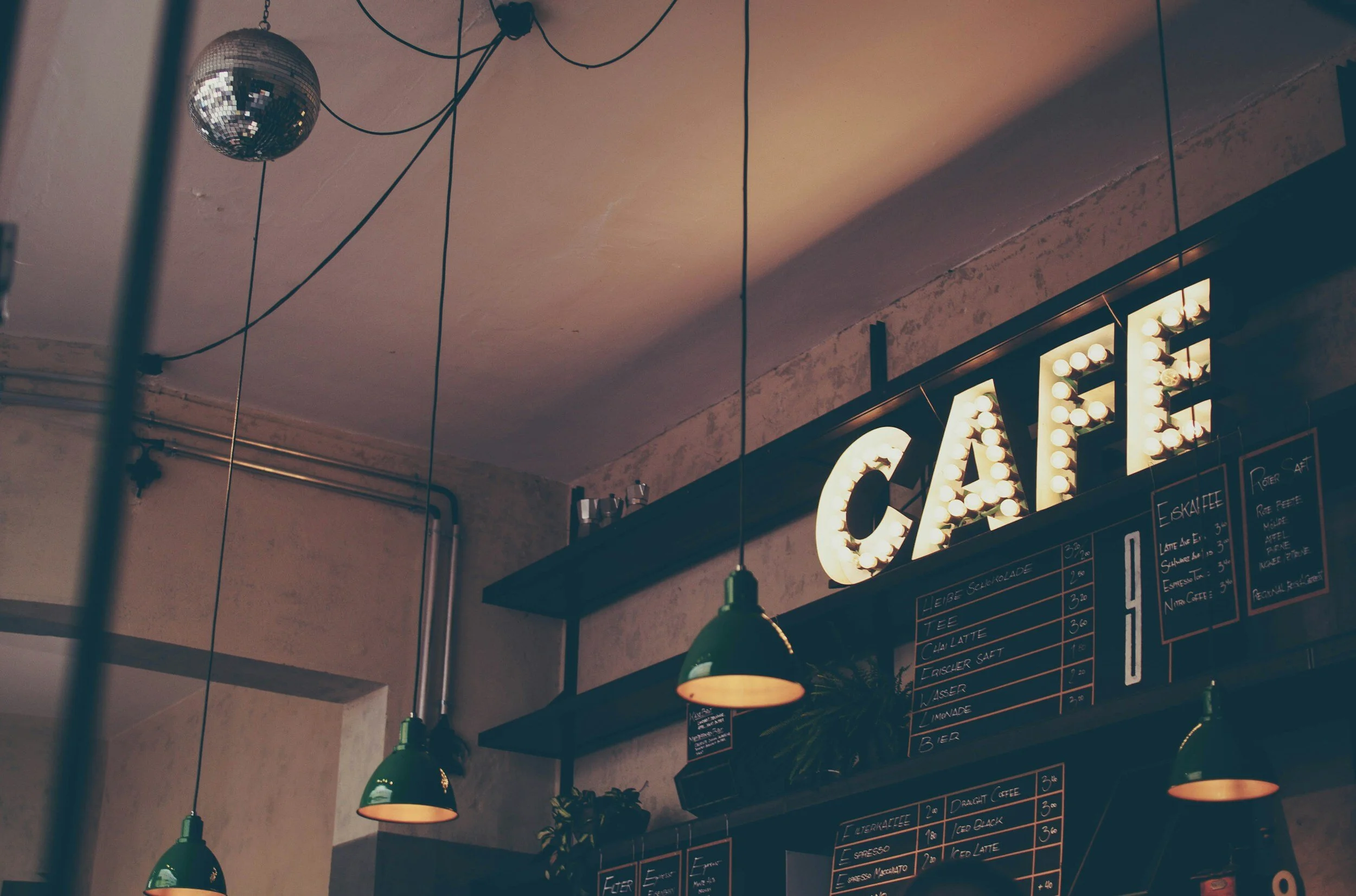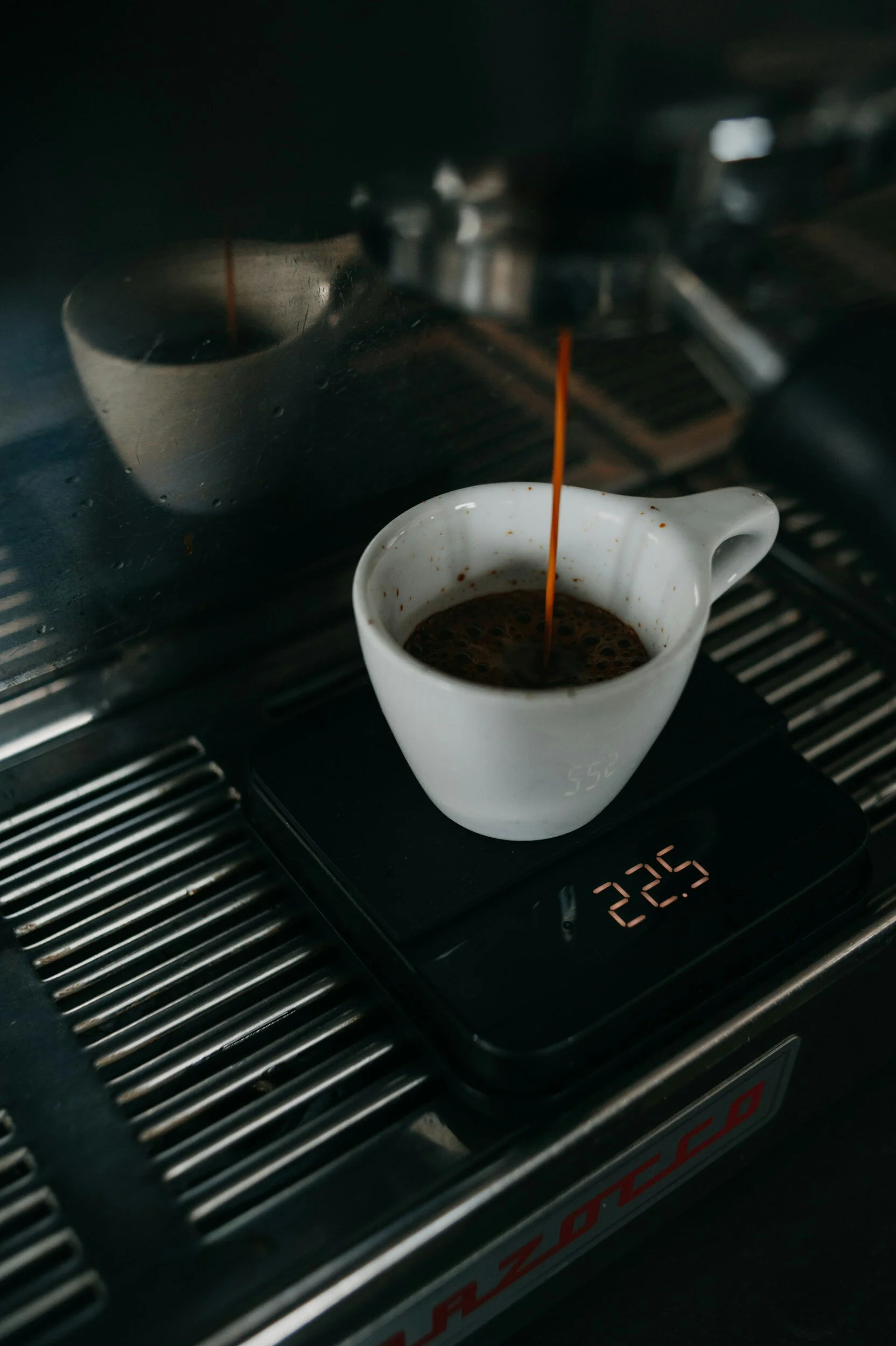The four horsemen of the stingy cafe owner (the four most underspent areas that are making your cafe suffer)
Coffee shops are seen as the perfect investment. Owners have the opportunity to provide coffee fanatics with their daily caffeine rush while making an extra few bucks. Some, however, hone in on the profits, expenses and turnover of their business that they completely forget about the key aspects that could enhance their entire business.
Running a coffee shop is not for everyone, and potential business owners should not expect to become highly wealthy by running a coffee shop. Saving on specific aspects of a coffee business can cost you more than one might think.
We would love to assist coffee shop owners in growing their businesses and improving their companies through four simple ways. These four horsemen should be seen as an investment, and business owners should use these areas to set them apart from other coffee spots.
Equipment
Coffee equipment serves as the foundation for any and every coffee business. Not only does the equipment serve every customer that enters the shop, but it also sets the standard for the coffees that customers enjoy in and out of your shop.
Coffee shop owners should avoid trying to cut corners when it comes to equipment. Buying cheap, second-hand equipment that has been neglected will not produce great results. A cheap machine with a terrible grinder is a setup for failure.
Machines and Grinders
The average setup cost for a new coffee shop can start at around R450 000. This does not only reflect the price of the equipment but includes every aspect of the shop. This is a hefty amount for a startup coffee shop, and owners will try to identify critical areas to save money. The very first area will be equipment.
The problem, however, is that lower-class grinders and machines can not handle the high volumes of coffee per hour that the owners want to push. Both the grinder and the machine will start off strong but will start to struggle as the rush of customers comes in.
This does not mean that business owners should jump to the purchase of the latest La Marzocco or Victoria Arduino machines combined with the Mahlkonig grinders. An alternative option is to identify the quantity of coffee the shop aims to make per day and, with the help of industry professionals, identify the best-suited machines that will be the best fit.
Not only will the Impact of cost-cutting on coffee shop profitability be felt, but the barista on the bar will have a daily struggle working on the terrible equipment. Leaving them miserable, which will be felt by customers in the service aspect of the business.
As an alternative to purchasing all the equipment beforehand, business owners can venture into renting-to-buy options. There are multiple options that would be of great benefit to the company. This will enable the coffee shop to have access to great equipment for a smaller monthly expense.
Scales, tampers, and all the necessities
Another key aspect to consistency and great-tasting coffee is scales, tampers and the small pieces of equipment that everyone forgets. Coffee will be the main attraction of your cafe. Thus, investing most of your time and energy to ensure that it is of great quality is of utmost importance.
Scales will allow the baristas to fix any grinding mistakes that the grinder might make. The scale will ensure that the dose is consistent. Equipment these days is extremely useful and accurate; however, placing a scale at the grinder to double-check the dose is crucial.
This is one of the best strategies for coffee shop owners to reduce expenses. The barista will produce a consistent cup of coffee, minimizing customers sending terrible-tasting coffee back. This means that the barista wasted less time and coffee on creating an entire new cup of coffee.
The best method to save money as a business owner is to find the experts and let them assist you from the start. Do not purchase equipment without the consultation of experts. Not only will you save time and money by not purchasing the right equipment, but you will start off in the best direction with the most suitable equipment.
Cheaper quality products can reduce business
The coffee industry is an extremely competitive market. Not for obvious reasons. We have a few specialty coffee shops in and around South Africa. Multiple chain stores and small restaurants serve coffee, which dilutes the industry drastically.
New coffee spots can not compete with the financial support that big chain stores receive. While chain stores draw many clients, other coffee lovers support their friends and small restaurants because of their unshakable loyalty.
This leaves a small portion of the market for new and innovative coffee shops. To compete with these other shops, coffee shop owners should stop cost-cutting and identify products that will take their brand and company forward.
Cutting costs by choosing cheaper coffee beans or milk can injure the brand. Coffee lovers will give the shop one or two opportunities to gain their loyalty, and with cheap, badly roasted beans, coffee shop owners might blunder that opportunity.
There are many roasteries out there that I would like to recommend. The mere fact that there are at least two coffee roasters in even small towns makes it easy to identify a company that provides great services and additional assistance.
Contact speciality roasters and ask for a coffee tasting. This will enable small business owners to taste the coffee and communicate their needs to the roosters.
Please ensure that the coffee you serve is of great quality and that you and your team will drink it. Evaluate the quality by asking yourself these questions:
Would I pay for this coffee?
Would I recommend this coffee shop if I was not involved in it?
Can you come back and enjoy the exact coffee you just tasted?
After the perfect single origin or blend is picked, the team must taste the coffee with various milk options. Not all milk options are equal. Some have more fat, while others include various fats and proteins. Pick a milk option that tastes amazing with your coffee and not based on price. Cheaper milk options might lead to your coffee tasting flat, like carton or simply milky. And always go with fresh cream milk.
This is a simple process that many skip. This can and will cost you, not particularly in finances, but a loss in customers due to low-quality products.
Training and development
Staff members are the front line of your business. This does not solely refer to waiting staff, but more importantly, baristas. Business owners have invested time, money and energy in identifying the best equipment, beans and products that represent their brand.
The barista, however, is the last hand between the company and their customers. If the barista is uneducated and does not understand how to dial in the espresso for maximum taste, all the money and energy have been wasted. A course as easy as the Introduction to Coffee course can ensure that all your baristas understand the impact they have on the entire industry.
Investing in your staff is of utmost importance. This will enable the business to have a strong frontline that knows how to pull tasty coffees and interact with the customers on a professional level.
There are multiple training opportunities in South Africa. Accredited courses presented by Authorized trainers are always a great idea. This will ensure that the baristas not only learn the valuable theory behind coffee but also understand professionalism and how to ensure that the business succeeds.
Other options are shorter on bar training courses. This will be a practical approach and will teach all baristas how to use the equipment, taste the espresso and understand how to steam milk.
The key, however, lies in training your staff. Many business owners skip this step and assume they will either teach baristas as they go or hire them with experience. This can also be a trap. Some baristas are self-taught and have bad habits that will cause business problems in the long run.
Regular servicing, water filtration and maintenance
The one area where many coffee shops miss the mark is water filtration and servicing. Water not only affects the taste of the coffee but also impacts the extraction process. This being said the water quality you use in the espresso machine will impact the quality.
Here are the key minerals that should be added to your filtration system to ensure the best extraction.
n addition to quality water, regular cleaning, maintenance, and servicing play a key role in the life span of the coffee shop equipment. Not only will the espresso machine struggle to keep up with the demand of your customers, but it will also struggle to produce quality coffee due to a lack of cleaning and maintenance.
Cafe owners should service their coffee machines once every six months to ensure that all the electronics, valves, rubbers and pipes are running properly. A lack of servicing and bad water can lead to scaling problems. This will shorten the machine's lifespan, produce bad-tasting coffee and cost the company an additional fund to either fix or replace, which could have been prohibited by a simple service or proper water filtration.
These small expenses will not only prolong the equipment's lifespan but also assist baristas with getting the most out of the coffee. This will ensure that customers can experience the best product consistently.
Conclusion
The aim of a coffee shop should not solely be to make as much profit as possible, especially if this comes at a high cost. Training your baristas, doing regular maintenance and servicing, doing water filtration, and purchasing the best products on the market will set you apart. Not only will you draw more customers, but you will keep them due to the great service, skills, and equipment that the coffee shop provides.





